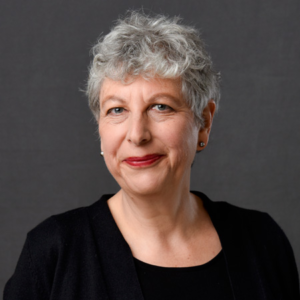 My biography and teaching responsibilities
My biography and teaching responsibilities
I was born and raised in Queens, New York. My parents were Holocaust survivors and as the first in my family to attend college, I feel a strong connection to City Tech and CUNY’s student body as well as a fundamental disposition to help people. After a prior career in non-profit librarianship, I was hired at City Tech Library to manage Technical Services, a specialized, inward-facing unit of the library. As the Library Department defines ‘teaching’ to include primary job responsibilities include non-teaching functions, I will briefly discuss my work as Technical Services Librarian and subsequent scholarly communications role.
Technical Services Librarian, 1999-2015
This position was responsible for creating and assuring consistent and seamless access to the library’s physical collections: books, print periodicals, microfilm, and other formats. My teaching required extensive supervision and training of support staff which I strengthened by creating documentation. I also shepherded electronic resources, databases, ejournals, and ebooks, from trial access to full discovery. As service, I created and managed the library’s website, taught information literacy workshops for Hospitality Management, and provided many college and university presentations.
Instruction and Scholarly Communications Librarian, 2016-
Instruction
In 2016, I seized the opportunity to change my functional position to instruction, deciding to make teaching the center of my practice as an academic librarian. As I reflect on why I chose to teach and what keeps me engaged, I love how, as a teacher, I have the freedom to try new approaches and continually learn from my pedagogical experiences. Moreover, my teaching draws on empathy, emotional intelligence, and self-awareness. Circling back to the idea of teaching-as-learning, educators understand how metacognition is important to their practice as well as to student learning. Saundra McGuire’s talk on metacognition at the 2019 CUE Conference transformed my thinking and my teaching. I encourage students to reflect on their knowledge and skills as well plan how to move forward; I apply metacognition to my practice as well.
As described previously under Background on library instruction, my current teaching activities include 25-30 information literacy workshops for ENG1101 and ENG1121 with additional workshops for my subject specialties and undergraduate researchers.
Scholarly communications
In addition to my student ‘instruction’ hat, I wear at least one more additional teaching hat as ‘scholarly communications librarian’ which was officially added to my job description in 2019-20. With the 2015 launch of Academic Works, CUNY’s institutional repository, I had an opportunity to increase faculty awareness of open access and scholarly communications. This role combines teaching faculty workshops on aspects of the scholarly publishing lifecycle with non-teaching efforts such as managing Academic Works which includes extensive outreach to faculty and undergraduate researchers as well as posting on behalf of the college’s authors.
I have also partnered with the Provost’s Office and Faculty Commons to convene and plan our annual Publication Support workshop series where I provide two of eight workshops. This initiative contributed to City Tech’s award of a CUNY grant to support our Mentoring Network. I created our Scholarly Publishing Clinic, an office hour for consultations. I am also interested in the intersection of scholarly communications and information literacy for students which I chiefly address in my instruction to undergraduate researchers.
My longstanding passion for open access and curiosity about scholarly communications evolved from my work managing the library’s ejournals. Open access captured my interest because it represents an entirely different approach to disseminating scholarly information. Freed from the limitations of print publishing, open access was created as a means to level the playing field allowing all scholars, no matter how poorly resourced, to have access to the literature. With traditional publishing, an author often cannot share their publication with their colleagues, their students, and the broader public.
I also teach how a scholar can document the impact of their work, increase the reach of their scholarship, and find the right publisher or journal for their research and then understand their rights as an author. In addition to my faculty workshops, I provide many one-on-one consultations that have made a critical difference in the success of our faculty’s publishing. Sometimes, I provide an intervention deterring unintentional predatory publishing. When in 2015, I chose predatory publishing as the central topic of my scholarship, I realized that this was a great opportunity to learn more about all aspects of scholarly communications and research ethics. As a result, I am a resource to the college and am able to advance my scholarly writing.



